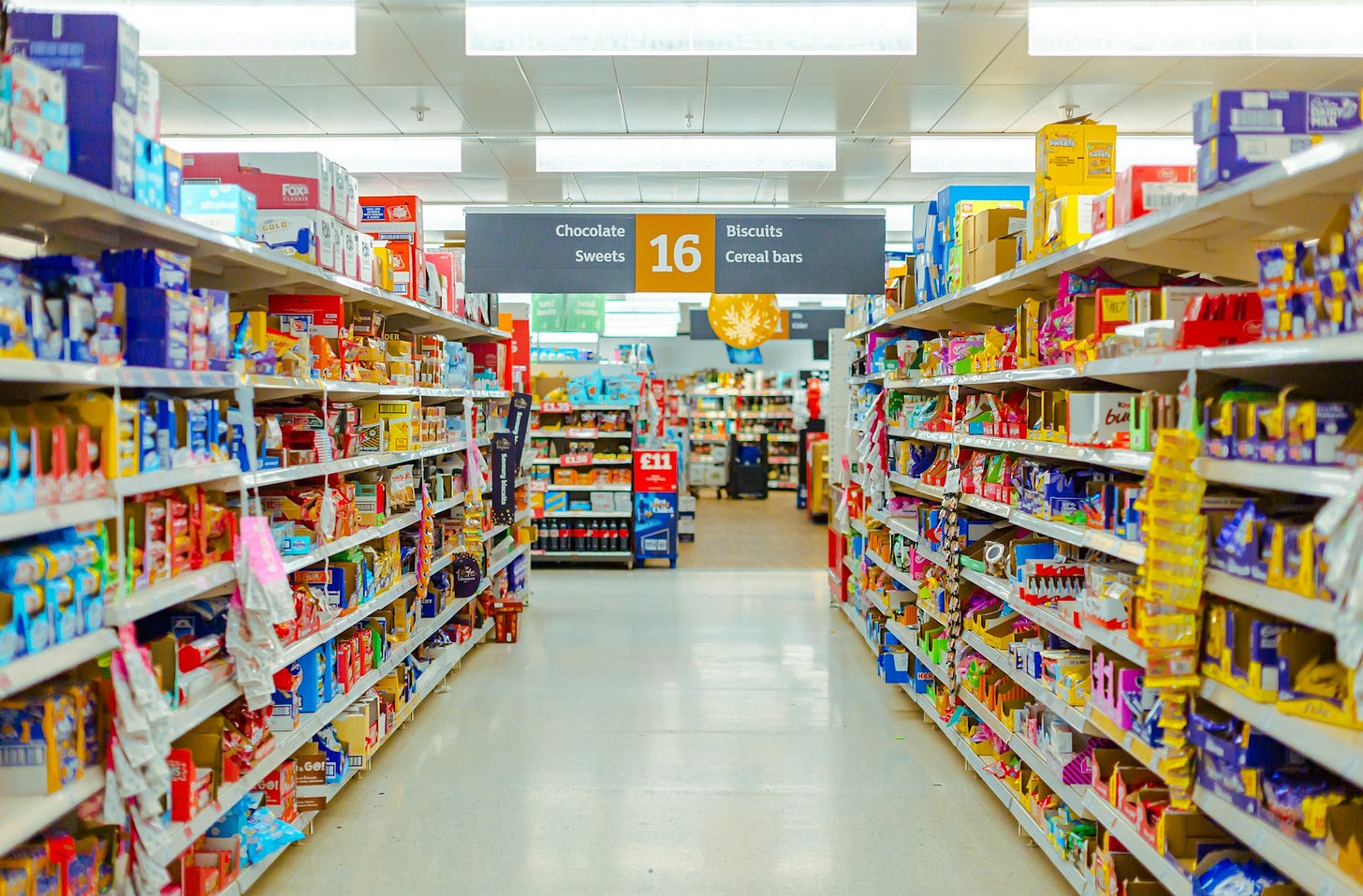Supermarkets slammed as “profit hungry” giants destroying health, farmers and the planet
Charity warns Britain’s food system is rigged as new poll shows public back worker-owned shops over corporate chains
Britain’s supermarkets may dominate the nation’s shopping baskets but their grip on the food chain is now being accused of wrecking our health, hammering farmers and fuelling climate chaos.
A damning new report from campaign group Foodrise claims that supermarkets, which control a staggering 96 per cent of the UK’s grocery sales, are blocking the government’s flagship food strategy and putting the country’s food security at risk.
While millions rely on them for convenience, the charity argues these “profit-hungry” giants are undermining communities, driving up waste, squeezing farmers and lining the pockets of executives—all while the cost-of-living crisis forces families to choose between eating well and saving money.
Poll reveals deep public mistrust
Fresh polling for Foodrise, carried out by YouGov, reveals a groundswell of support for a radical shake-up of the way food shops are run. More than half of Brits (54 per cent) said they would prefer supermarkets to be run by cooperatives or employees, compared to just 16 per cent who backed the private model and a paltry three per cent who favoured state ownership.
And anger at corporate excess is clear. Two-thirds of respondents (65 per cent) said £1 million a year is far too much for a supermarket CEO—yet Tesco boss Ken Murphy raked in nearly £10 million in 2024, more than double the year before.
As food prices continue to rocket—up 5.1 per cent in the year to August, according to the Office for National Statistics—more people admitted saving money (33 per cent) took priority over buying healthy food (15 per cent).
Government’s food strategy branded a fantasy
Published in July, ministers’ long-awaited food strategy set out a vision for a “healthy, sustainable and affordable” system led by the private sector. But Foodrise insists supermarkets’ very structure makes that impossible as they are hardwired to put profits above public health, the environment or long-term food security. By way of example, the charity points to the higher prices in “express” stores disproportionately located in poorer areas.
Nearly half of those surveyed (45 per cent) said supermarkets are failing to support local food or help households cut waste. With more than 80 per cent of Britain’s fruit and almost half of its vegetables imported, and a shocking 40 per cent of global food wasted, campaigners say the current model is broken.
Farmers losing out while independents show the way
Foodrise is also calling for tighter regulation to stop supermarkets selling below cost, which undercuts farmers, and to ensure suppliers are paid fairly. The charity highlights research showing farmers earn three times more when selling through alternative routes rather than big chains.
Small-scale retailers, co-operatives and community-owned grocers are already proving a better model, boosting diets by increasing fruit and veg consumption while keeping profits in local economies. But the sector remains overlooked and under-supported by national and local policymakers.
Rebuilding independence
Julia Kirby-Smith, Executive Director of Better Food Traders, said a thriving independent retail network could be transformative: “Rebuilding an independent food retail sector can help tackle multiple issues—from boosting our high streets and local jobs, to ensuring fair pay for farmers, access to healthier food, and a more sustainable food system.
Foodrise is urging ministers to invest in regional food hubs, offer business rate relief for sustainable food start-ups, and roll out fruit and veg prescription schemes.
With supermarkets accused of fuelling everything from obesity to climate change, campaigners warn that without urgent reform, Britain’s food strategy risks becoming another broken promise—leaving families, farmers and the planet to pay the price.



